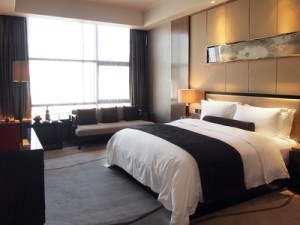
Large hotels rely on loyalty programs and name recognition to get business. While this is not an impossible feat for small hotels, the landscape does look different. Boutique hotels and large hotels typically don’t cater to the same audience. What works to market a large hotel isn’t necessarily the best course of action for a small hotel. Experiment with different marketing techniques designed for small businesses to increase your ROI and grow your brand recognition.
Social media makes an ideal platform for small and large businesses alike. It’s free to get started with, reasonably easy to use, and doesn’t generally require any equipment that you don’t already have on hand. You might use Instagram and Pinterest to curate engaging photos of your hotel and its amenities. You might use Twitter to advertise promotions and engage travelers in your city. If you blog about hotel happenings and what makes your hotel a unique asset in your community, use social media to promote your blog. As you grow a social audience, you may capture more business from repeat travelers who have come to enjoy your brand.
Use social media as a channel to connect with and engage customers, not strictly to make sales! More sales will arise from a thoughtful social media presence than from one that focuses on sales.
While you can do a lot of your hotel marketing on your own, it’s unrealistic to expect to do all of it. Pay for professional quality hotel photography for your website, marketing materials, printed brochures, and other PR materials. Look for 3 to 4 quotes for any service you want.
This may seem stressful, especially for new hotel owners who have a lot of expenses. You may not want to prioritize marketing over housekeeping and operations. Keep in mind that there are cost-effective solutions to marketing. One of the most critical aspects of managing your hotel is tracking financial information. There are many solutions, including Quickbooks, which will help you oversee all aspects of accounting, invoicing, and budgeting. A small business credit card can be helpful here, too.
Promotions can be a great way to capture attention, and you don’t have to run them frequently to have the desired effect. Consider offering a free meal in your hotel restaurant or a free night’s stay giveaway to celebrate your anniversary. You might enjoy partnering with other local businesses to provide amenities to your customers. Promote local bicycle rentals, city walking tours, bakeries, or cafes by showcasing brochures. You could also include their products in your amenities kits. Those businesses are going to be more likely to advertise your hotel in return. Finally, consider offering promotions to members of other loyalty clubs or to repeat customers as a way of rewarding guests for choosing your hotel. As you build customer loyalty, you gain an army of fans willing to recommend your hotel over others.
Focus on engaging content, not hard sells. Share appealing photos on Instagram or Pinterest, tweet local tips and deals, and promote blog posts. Building genuine interaction encourages repeat travelers.
High quality images showcase rooms and amenities, instantly conveying value and personality. Hiring a pro may cost more than DIY shots, but the stronger first impression converts more browsers into bookers.
Software like Quickbooks tracks accounting, invoicing, and budgeting in one place, letting owners see marketing spend clearly. A dedicated small business credit card also separates expenses and provides useful statements.
Limited-time offers grab attention without eroding rates. Free meals, anniversary night giveaways, or joint packages with local tours and cafes generate buzz and cross-promotion, attracting new guests and rewarding regulars.
Not necessarily. Smaller properties often rely on unique experiences and personal engagement instead. Targeted social media, quality visuals, and occasional promotions can build loyalty organically without the overhead of large programs.